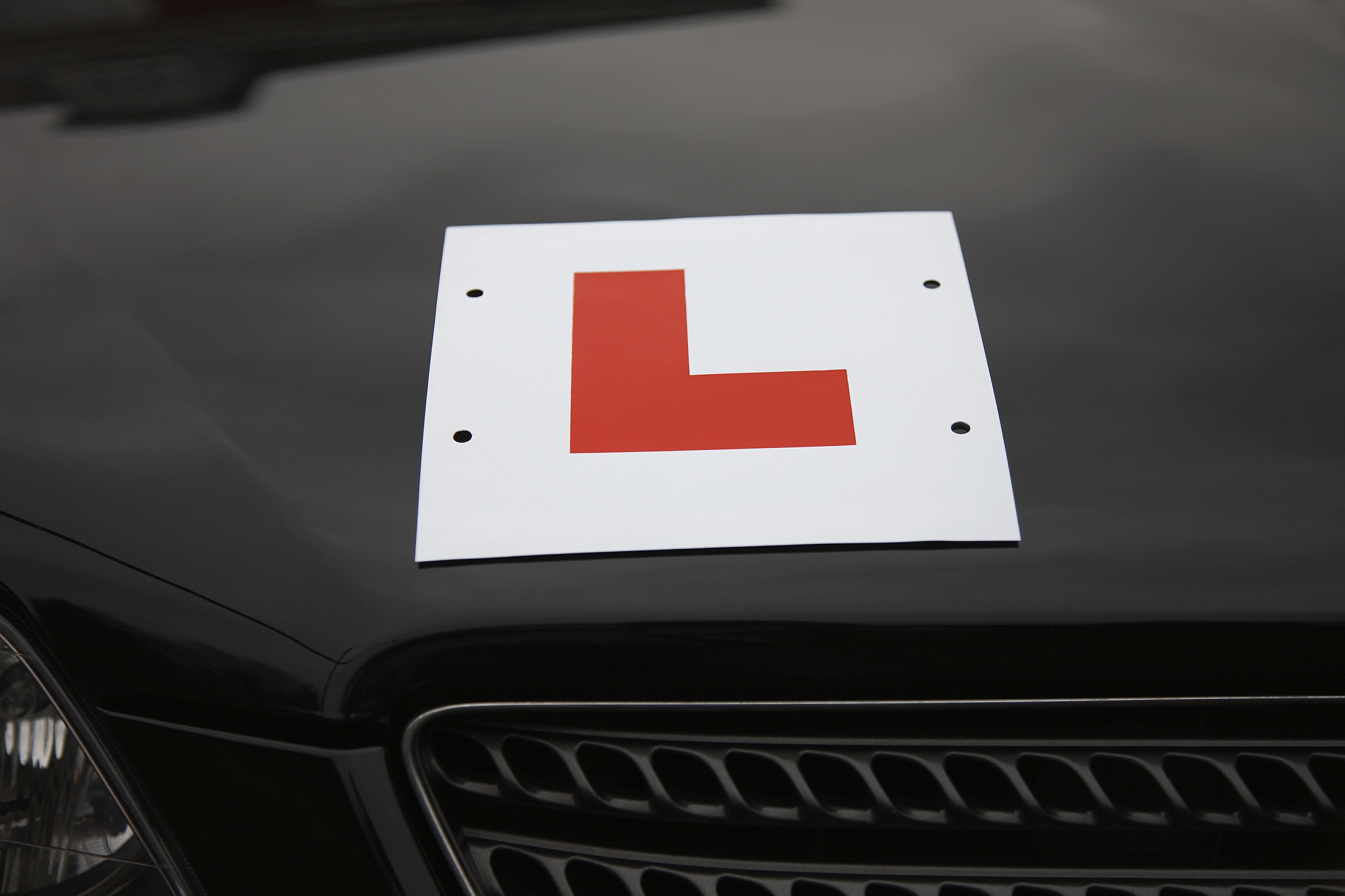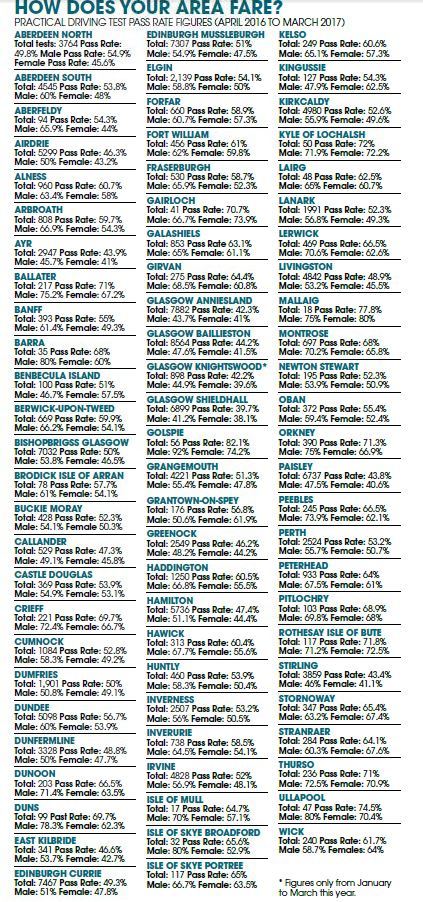
IT’S a rite of passage which every young driver begins preparing for the second they turn 17.
The feeling of freedom which accompanies the moment they can throw away the L-plates and head out on the open road, unsupervised by mum, dad or a professional instructor.
However, things just might be about to get tougher for Scotland’s learner motorists.
A revamped practical test will be introduced later this year, to better reflect the demands of modern roads.
Among other changes, drivers will be assessed on their ability to follow Sat Nav instructions.
But, ahead of the implementation of the changes in December, does where you sit your test – for example, in a small rural town or a bustling city – make a difference to your chances of passing?
And does gender play a part?
The Sunday Post today publishes the latest test results from the DVSA’s 77 centres around Scotland.
They reveal that the pretty seaside village of Golspie in Sutherland, with a population under 2000, boasts the country’s highest pass rate, at 82.1%.
Mallaig scores the country’s second-highest rate of 77.8%, with Ullapool third at 74.5%.
At the opposite end of the population scale, Glasgow produced the worst results.
Shieldhall, Knightswood and Anniesland reported pass rates of 39.7%, 42.2% and 42.3% respectively.
Boys do better than girls in the practical test with exceptions in only 10 centres – all but one of them, Stranraer, in the Highlands and Islands.
Driving Instructors Association chief examiner Karen Bransgrove says: “Males seem to be more interested in driving and mechanics and seem to require fewer lessons.” But while gender plays a part in success behind the wheel, she says where you sit your test does not.
The examining expert says: “DVSA examiners are trained to look for uniform faults. You can be on any street anywhere but if you do not have the skills to drive properly it shows quickly. Rolling on a hill will be the same in a remote village in Scotland as it is on a street in Glasgow.”
Karen believes that, in cities, more people sit their test without receiving professional tuition. Cities also draw a higher number of foreign drivers who may bid to obtain a UK licence without seeking formal training.
And, as people rely more heavily on cars in outlying areas, rural residents are more likely to seek professional tuition.

Enjoy the convenience of having The Sunday Post delivered as a digital ePaper straight to your smartphone, tablet or computer.
Subscribe for only £5.49 a month and enjoy all the benefits of the printed paper as a digital replica.
Subscribe